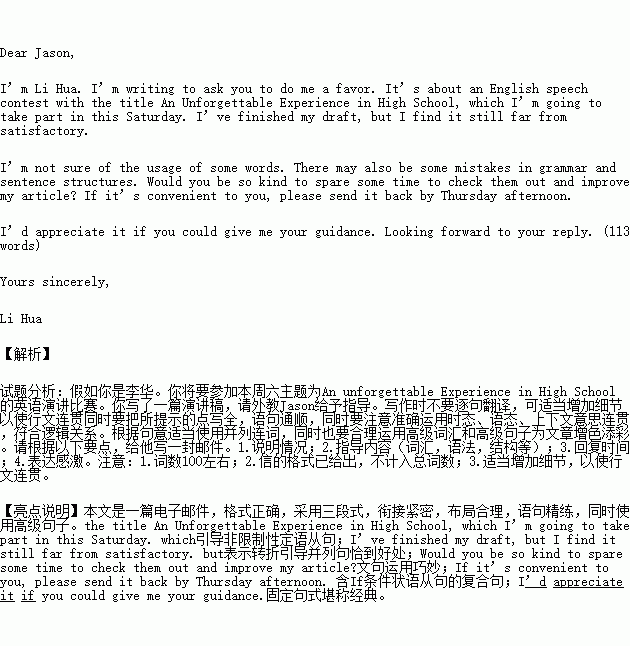题目内容
假如你是李华。你将要参加本周六主题为An unforgettable Experience in High School 的英语演讲比赛。你写了一篇演讲稿,请外教Jason给予指导。请根据以下要点,给他写一封邮件。
1.说明情况;
2.指导内容(词汇,语法,结构等);
3.回复时间;
4.表达感激。
注意:
1.词数100左右;
2.信的格式已给出,不计入总词数;
3.适当增加细节,以使行文连贯。
Dear Jason,
__________________________________________________________________________________________
____________________________________________________________________________________________
____________________________________________________________________________________________
____________________________________________________________________________________________
______
Yours sincerely,
Li Hua
练习册系列答案
 阅读快车系列答案
阅读快车系列答案
相关题目

